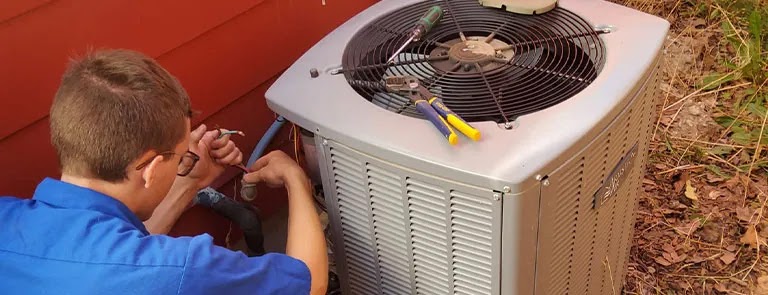What Does SEER Rating Mean on Your HVAC Unit
When it comes to choosing an HVAC unit, understanding the SEER rating is crucial. SEER stands for Seasonal Energy Efficiency Ratio, and it serves as a valuable indicator of your system’s energy efficiency. Higher SEER ratings mean greater energy efficiency and potentially lower energy bills. In this blog, we will review the significance of SEER ratings and explore how they impact your HVAC system’s performance and your overall comfort.
Understanding SEER Ratings
The SEER rating is a measure of the cooling output of an HVAC system divided by the energy input over a typical cooling season. It represents the unit’s efficiency by considering the cooling capacity in relation to the energy consumed. SEER ratings typically range from 13 to 25, with higher numbers indicating greater energy efficiency.
Energy Savings
One of the benefits of a high SEER-rated HVAC system is the potential for significant energy savings. Higher SEER ratings imply that the unit can deliver more cooling while consuming less energy. This translates into lower utility bills over time. Upgrading to a higher SEER-rated system can lead to substantial cost savings, especially in Utah as we experience our long and hot summers.
Environmental Impact
Energy efficiency is not only beneficial for your budget but also for the environment. When you choose a SEER-rated HVAC unit, you contribute to reducing greenhouse gas emissions. These units require less energy to operate, which results in lower carbon dioxide (CO2) emissions. By making this eco-friendly choice, you can help mitigate climate change and promote sustainability.
Performance and Comfort
SEER ratings directly impact the performance and comfort of your HVAC system. Higher-rated systems can provide better humidity control, temperature consistency, and improved indoor air quality. They’re designed to run for longer durations at lower speeds, which ensures a more even distribution of cooled air throughout your home. Also, some technologies incorporated into high SEER-rated units help minimize noise levels, creating a quieter and more comfortable living environment.
Investment Value
Upgrading to a high SEER-rated HVAC system is an investment that can benefit you in the long run. The upfront cost of a higher-rated system may be slightly more, but the energy savings it offers can quickly offset your initial investment. Another bonus? High-efficiency HVAC system adds value to your property, making it a great selling point for potential buyers if you decide to sell your home in the future.
Energy Efficiency Regulations
SEER ratings are subject to government regulations, and those regulations establish minimum energy efficiency standards for HVAC systems. If you don’t regularly keep up on the regulations and requirements in your area, the trustworthy technicians at 1st American Plumbing, Heating & Air can help you make an informed decision when it’s time to consider a new HVAC unit.
Factors Affecting SEER Ratings
There are a lot of factors that influence the SEER rating of an HVAC unit. These factors include:
- System components: The efficiency of various components, such as the compressor and coil, contributes to the overall SEER rating.
- Sizing and installation: It’s critical that sizing and correct installation take place for the unit to reach optimal performance and achieve the rated SEER.
- Climate: SEER rating can vary depending on the climate conditions in your area. Units with higher SEER ratings are more suitable for Utah because of our hotter climate.
Choosing the Right SEER Rating
Selecting the appropriate SEER rating for your HVAC system involves considering many factors. These factors can include your budget, climate, energy efficiency goals, and the estimated payback period. The reputable HVAC professional at 1st American Plumbing, Heating & Air can help you determine the ideal SEER rating based on your specific needs and circumstances.
Maintenance and Efficiency
To ensure your HVAC system maintains its energy efficiency, be sure to perform regular maintenance on your unit. Easy tasks like cleaning or replacing filters, inspecting, and cleaning coils can help your unit keep running effectively even through our hot Utah summers.
Understanding the significance of SEER ratings empowers you to make an informed decision when selecting an HVAC unit. With the potential for energy savings, environmental impact, enhanced comfort, and increased property value, a high SEER-rated system is a wise investment. Be sure to contact 1st American Plumbing, Heating &Air today for more information and take a step towards a more efficient and comfortable living environment.
The Article -“What Does SEER Rating Mean on Your HVAC Unit“ was Originally Posted Here.




Comments
Post a Comment